On Saturday morning, two days before the start of early primary voting, New York Congresswoman Alexandria Ocasio-Cortez took to the stage at a music venue in Central San Antonio to deliver a message familiar to Texas liberals. “This state is going to change the country. … That’s why I’m here, for the long game. I don’t care how many cycles it takes, it’s going to happen: Texas turning blue is in-ev-it-ab-le,” she said to uproarious applause from the few hundred in attendance.
The hope of the Great Blueing of Texas is, of course, invoked as often as it is dashed. And there’s little evidence yet suggesting Democrats will make headway statewide, in the balance of the congressional delegation, or in the Legislature this year. But the New Yorker identifies hope in two “game-changing candidates” she came to the Alamo City to support: Greg Casar, a former city council member vying for the Austin-based 35th Congressional District, and Jessica Cisneros, an immigration attorney running in the Laredo-based 28th. The two elongated districts stretch to meet in San Antonio.
Like Ocasio-Cortez, both candidates are young, Hispanic, and committed to an array of left-wing proposals, including Medicare for All and a $15 minimum wage. They share the endorsements of national progressive groups, including the Justice Democrats and the Working Families Party along with state and local unions and the Texas Organizing Project. They’ll also have to overcome more established Democrats in their primary contests. If successful, they’d be Texas’ first potential members of the “Squad”—the loose moniker for a cohort of young candidates of color elected in recent years who are fighting to push the party left.
“In this moment when Texas has grown and we’re going to have new and more congressional representation, the question is what kind of representation,” Casar said Saturday. “We need progressive fighters in Texas.”
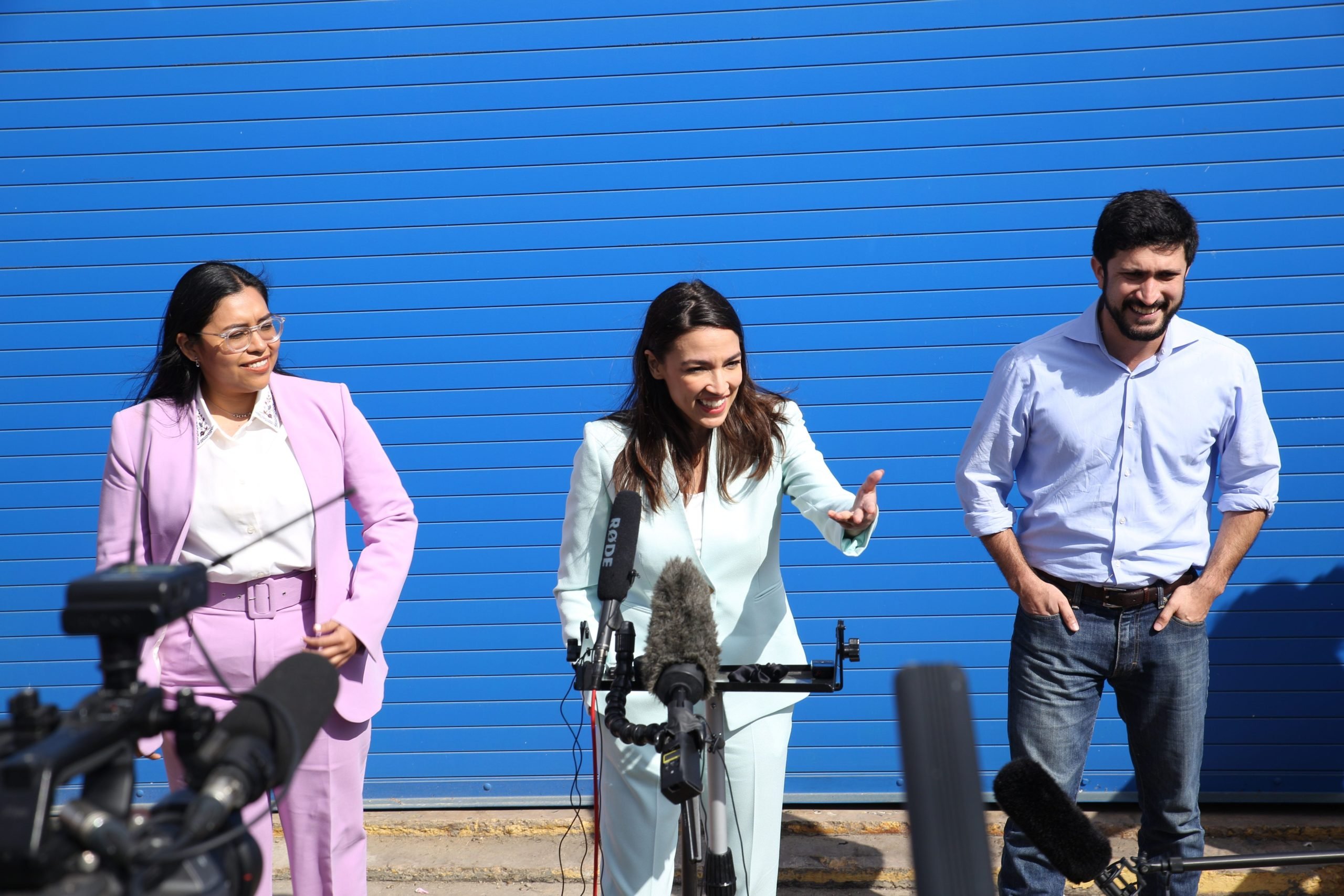
In 2014, Casar was elected as Austin’s youngest ever city council member at the age of 25, part of a sea-change election as the city switched from an at-large council to district-based seats—a move meant to open the door for more candidates of color. Prior, Casar had been a labor organizer for a local nonprofit. In the coming years, he emerged as the council’s predominant mover of progressive policy. Under his leadership, Austin increased its minimum wage for city employees, effectively ended arrests for low-level pot possession, became the first city in the South to pass an ordinance requiring private employers to provide paid sick leave, rolled back ordinances criminalizing homelessness, and moved to transfer money out of the police department and into civilian social services.
By last year, however, when Casar declared for Congress, his progressive momentum seemed to be faltering. The state’s conservative courts quashed the city’s paid sick leave policy before enforcement could ever begin, Austin voters themselves recriminalized behaviors associated with the unhoused, and the Legislature forced the city to restore its police budget. Other avenues were already foreclosed by state statute: In Texas, for example, it’s illegal for cities to raise the minimum wage for private businesses or to ban discrimination against Section 8 tenants. Before deciding on the U.S. House bid, Casar briefly considered a state Senate run in 2020 and was stymied in a later bid for mayor pro tem.
On Saturday, Casar acknowledged the state had frustrated a number of his initiatives. “Do we respond by just giving up? Or do we continue to build our movement to go to Congress to pass paid sick time for every single Texan, paid parental leave for every single American, and a $15 an hour minimum wage?” he told the Observer, adding that he’d use his federal perch to “override the Legislature.”
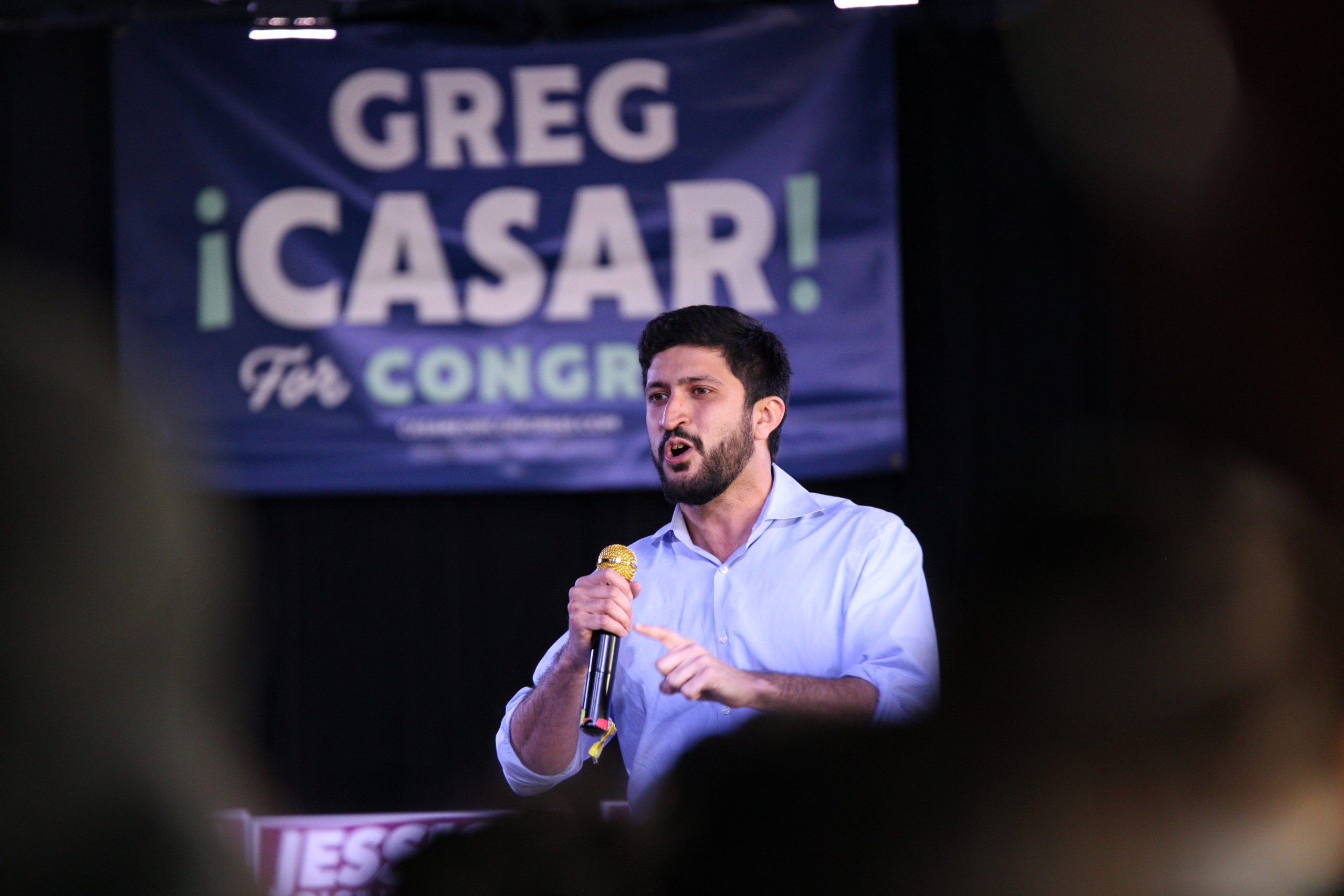
There is no incumbent in Casar’s primary since longtime House Representative Lloyd Doggett switched to run for a neighboring seat created in last year’s redistricting. But Casar is facing off with Eddie Rodriguez, a 10-term state House member from Austin, and Rebecca Viagran, a former San Antonio City Council member. So far, Casar appears in a strong position: He’s far ahead of his competition in fundraising as of the latest filings, he’s released two internal polls showing a large lead, he won the backing of San Antonio’s daily paper, and his yard signs blanket East Austin. In recent weeks, Rodriguez has tried to go negative on Casar, sending a misleading mailer about homelessness, while also launching a TV ad that mimics a defunct series of Dos Equis commercials.
Jessica Cisneros, 28, is taking her second shot at unseating conservative Democrat Henry Cuellar, who’s held Laredo’s congressional seat since 2005. On Saturday, Cisneros recounted her work defending immigrants—often incarcerated in for-profit facilities without access to counsel—from deportation, while “my congressman, despite representing a border district, was being funded by those very same private prisons that I’m fighting against.” This prompted a chorus of boos from the crowd and at least one “Fuck Cuellar!”
In 2020, Cisneros lost her bid by fewer than 2,700 votes. Last year, she raised around $800,000 while Cuellar raised some $1.8 million including money from Chevron, SpaceX, and Koch Industries.
“We are offering an alternative vision for South Texas,” Cisneros said Saturday, “one that’s fighting to recognize that healthcare is a human right and not a privilege, one that’s going to pass Medicare for All, one that’s going to have a $15 minimum wage, one that’s going to have education, one that’s not going to have a border wall.”
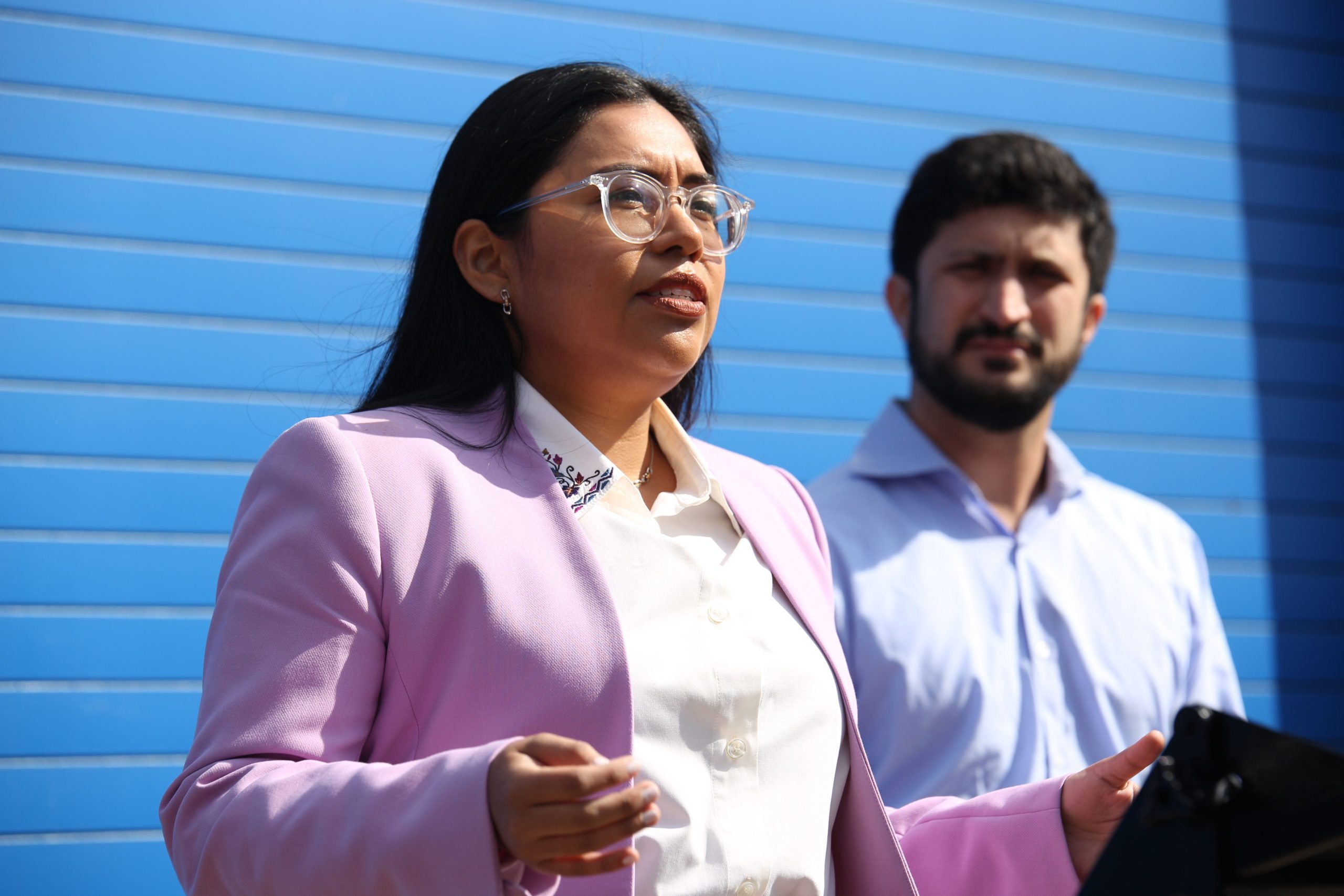
Last month, Cisneros received a political blessing in the form of an FBI raid on Cuellar’s Laredo house and office. Details remain scarce, but the raid was reportedly part of a probe of organizations tied to the Caucasian Republic of Azerbaijan. Cuellar maintains the investigation will show “no wrongdoing” on his part, but the raid cast a cloud of suspicion that may linger through the primary. Some Republican operatives appear to be using the scandal to boost Cisneros, likely because they see her as a weak general election candidate—a claim Cisneros disputes.
“FBI raid or no FBI raid, we knew from the very beginning that we were the most electable candidate to put forward in the general election,” Cisneros said, “because we know that we are speaking to the challenges and struggles that South Texans face every day.”
On Saturday, across the street from the San Antonio music venue where the Democrats spoke, a smaller rally of about 50 gathered. They carried signs reading “Don’t AOC My SA,” “Socialism Kills,” and, in one case, “Come Mierda Comunista.” Drivers in F-150s trailing Trump flags laid on their horns and the group chanted “Let’s Go Brandon” at the top of their lungs in a bid to disrupt the main rally. Based on three interviews, the crowd’s main purpose was to beat back the rising tide of a Soviet America.
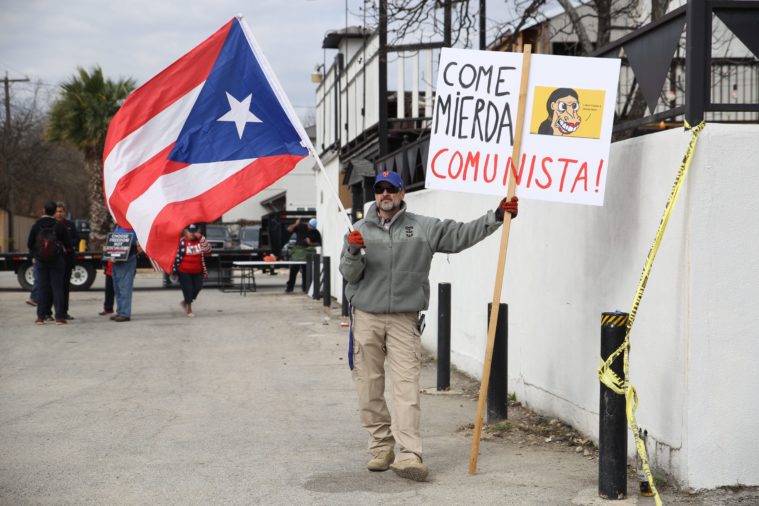
Rebecca Perez, 67, told the Observer she’s a lifelong San Antonian—“puro West Side,” she clarified—who opposes Ocasio-Cortez’s agenda. “She’s a communist; she wants to bring communism to this country, and we can’t allow it here in San Antonio,” Perez said.
Also outside the venue, separate from the Trump crowd, stood a number of musicians who are striking against the San Antonio Symphony for a fair labor contract. Ocasio-Cortez gave them a shoutout during her speech, along with a group of Starbucks workers just five miles from the venue who are seeking to become the first in Texas to join a wave of unionization.
Among the Ocasio-Cortez supporters inside the venue were Sarah Jorgensen and Summerlin Ortiz, both San Antonians who wore matching “F*ck Abbott” masks in reference to the Texas governor. They came to see the New York congresswoman. “She’s not afraid to speak up for the little people,” Ortiz said. They didn’t know much about either Casar or Cisneros, and weren’t positive which congressional district they lived in, but they were grateful that Ocasio-Cortez was drawing their attention to local candidates.
Stephen Colly said he came out “to show people that there are still some progressives in San Antonio and in Texas.” A 68-year-old architect and San Antonian in the district Casar seeks to represent, Colly added: “Sometimes it feels kinda lonely; I think in the press we sometimes get short shrift. … There’s a hell of a lot of progressive people here.”
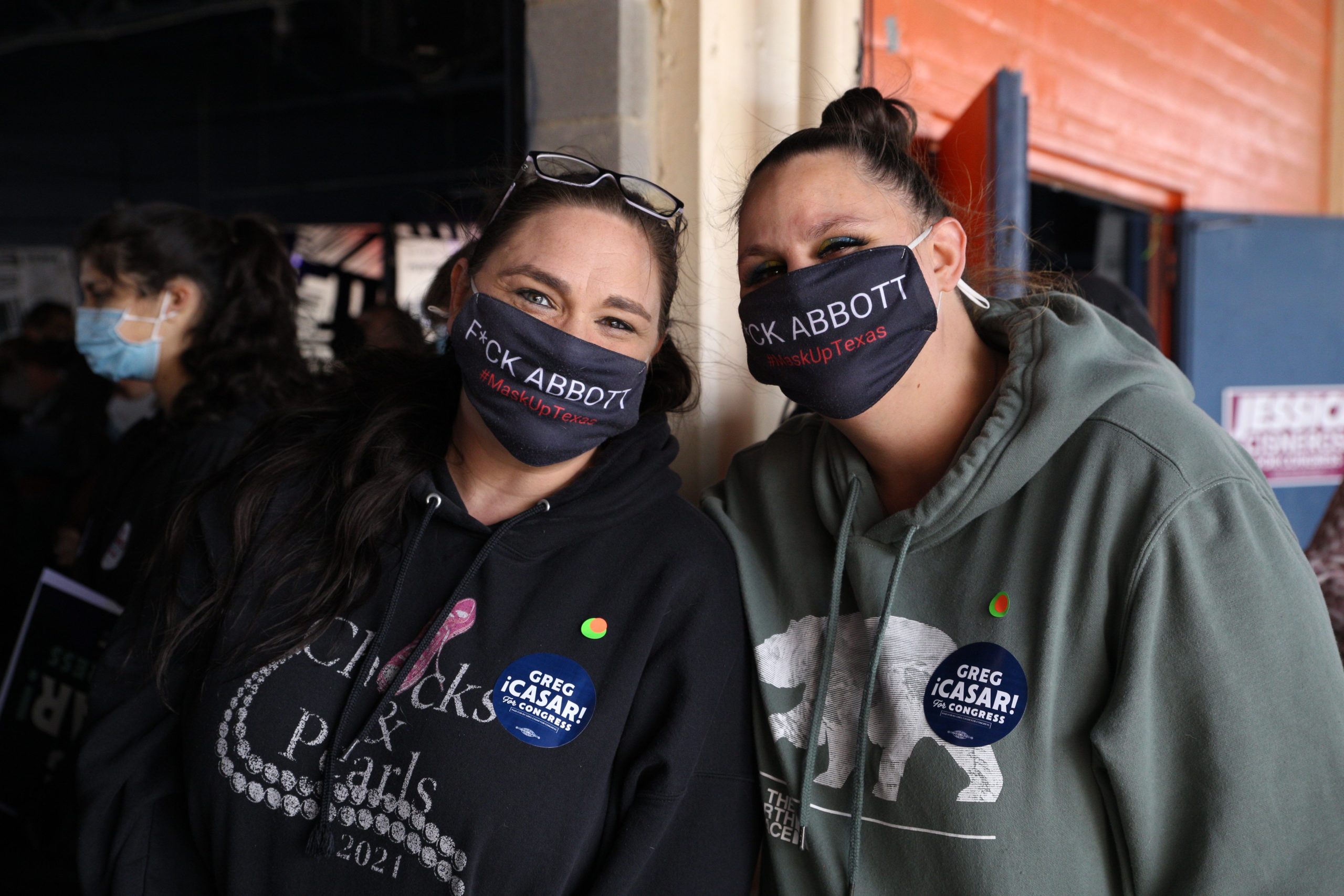
Editor’s Note: Laura Hernandez Holmes, the board chair for the Texas Democracy Foundation, is employed by Greg Casar’s campaign. TDF is the nonprofit organization that publishes the Texas Observer. The TDF board plays no role in the Observer‘s journalism.







